Fritextsökning
Artiklar per år
Innehållstyper
-

Rise and Scantox cease conducting animal testing in Stockholm
Access to in vivo toxicology services is significantly decreasing in the Stockholm area as Rise shuts down animal testing and Scantox reorganizes. ”The costs are high, and demand is weak”, says the division manager at Rise to Life Science Sweden.
-

Hypothesis testing versus conspiracy theory
"How do you know what is a conspiracy theory and what is a reasonable, scientifically based conclusion?" In a column, Ingrid Lönnstedt reflects on this question.
-

Delseger i domstol för entreprenör som miste sitt bolag
Life science-profilen Mikael Kubista har vunnit rond 1 mot en advokatfirma som han tillsammans med andra delägare stämt för vårdslös rådgivning i samband med att han förlorade sitt bolag Tataa Biocenter.
-

Norwegian cancer research companies merge
The Norwegian companies Ultimovacs and Zelluna Immunotherapy plan to merge. At the same time, it is made clear that Ultimovacs' CEO is leaving the company.
-

Large study on milk: Risky for women but not for men
The risk of ischemic heart disease (IHD) and acute myocardial infarction (MI) increased for women with milk intake levels higher than 2 glasses per day, while no such association was found in men, according to a new large Swedish study.
-

Thomas Eldered: ”Innovation is the key”
Thomas Eldered speaks in a web clip about the challenges facing the life science sector in the future and what he, as an investor, finds most interesting in new companies.
-

Anna Törner: ”If I fall seriously ill, I’ll move to Finland”
”It is both undignified and undemocratic that cancer patients must travel to Finland to uphold a façade of fairness that does not truly exist”, Anna Törner writes in a column.
-

In search of Marcel Proust's lost health
A great writer, but also a weak person and a hypochondriac. That has been the usual image of Marcel Proust. But the pediatrician and literary scholar Carl Lindgren paints a partly different picture in a new book about the French master's life, health
-

På spaning efter Marcel Prousts svunna hälsa
En stor författare, men också en klen hypokondriker. Det har varit den gängse bilden av Marcel Proust. Men barnläkaren och litteraturvetaren Carl Lindgren tecknar en delvis annorlunda bild i en ny bok om den franske mästarens liv, hälsa – och förhållande till läkarkåren.
-
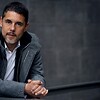
Seminarier får svensk life science att blomstra: “Fyller rummet med rätt personer”
Minimala risker, maximal räckvidd. Genom ett unikt koncept hjälper nu Medicon Valley Alliance företag att skapa mötesplatser där rätt personer samlas – och intresset ökar.
-

Investigations against AstraZeneca: ”Chinese interests may be behind them”
Why are there several investigations against AstraZeneca employees in China right now? Life Science Sweden continues to seek answers.
-

Trumps nya FDA-chef varnar för "massiv övermedicinering"
Donald Trump har nominerat kirurgen och författaren Marty Makary till ny chef för den amerikanska läkemedelsmyndigheten FDA, som enligt den tillträdande presidenten har ”förlorat amerikanernas förtroende”.
-
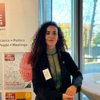
The key to successful collaboration between industry and academia
Why is collaboration between industry and academia necessary in the life sciences sector? What obstacles exist, and what is the key to successful collaboration?
-
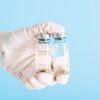
Roche’s Genentech terminates licencing deal with Norwegian biotech
Genentech is ending a license collaboration with Norwegian biotech Nykode Therapeutics regarding a clinical stage cancer vaccine program.
-

The new Swedish life science strategy – “It will consolidate Sweden as a leader”
Clinical trials and precision health are emphasised as key areas in the new national life science strategy.
-
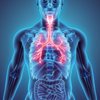
AZ gets approval for drug targeting rare disease – it may reduce cortisone dependence
AstraZeneca’s drug Fasenra gets an expanded indication in the EU and is now approved as a treatment for the rare autoimmune disease known as Churg-Strauss syndrome.
-

Japansk läkemedelsjätte flyttar till Forskaren
Ännu ett stort läkemedelsbolag flyttar in i Forskaren i Hagastaden.
-

Lilly´s Nordic manager on Mounjaro launch in Sweden: "Patients deserve respect"
Another blockbuster diabetes and obesity drug has made its way into the Swedish market – with promises of a stable supply and availability for patients. “What we see is a significant unmet need, so we are expecting to have quite a good welcoming
-

Donanemab godkänns i Storbritannien – men anses för dyrt för skattebetalarna
Eli Lillys alzheimerläkemedel donanemab godkänns i Storbritannien – men lär ändå inte bli tillgängligt för vanliga patienter. Orsaken är att behandlingen bedöms vara för dyr i förhållande till nyttan den kan göra.
-

”The importance of stratification in a statistician’s August kitchen”
Ingrid Lönnstedt writes about an experiment of her own at home and about what lessons can be learned from it, in a science column.
-

A new life science cluster formed – “We are very strong in talent”
Stockholm and Uppsala’s joint life science cluster aims to be among the best in Europe. Pontus Holm, Life Science Coordinator for Region Stockholm, says the decision to create a joint profile for the two cities is strongly supported. He mentions that around 50 stakeholders were asked last winter if they were in favour of a joint cluster and that “the answer was a resounding yes”.
-
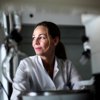
Her company is developing a new tablet form obesity drug
Obesity and diabetes are the primary targets of a new tablet treatment under development by Malmö-based Pila Pharma. The company’s ambition is to take on the billion-selling GLP1 analogues. ‘‘Basically, I expect all the beneficial effects that they have
-

Leo Pharma to cut 200 jobs and reorganize
Danish Leo Pharma cuts down on staff in its global operations. Around 200 positions will be cut, while 50 will be moved to Poland.
-
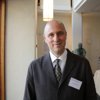
This years Nobel prize in medicine – “Changed the understanding of how genes are controlled”
This year’s Nobel Prize in Physiology or Medicine goes to the discovery that small RNA molecules, known as microRNAs, control how genes are regulated. Understanding the mechanism has changed our view of human biology and evolution, says KI Professor András Simon.